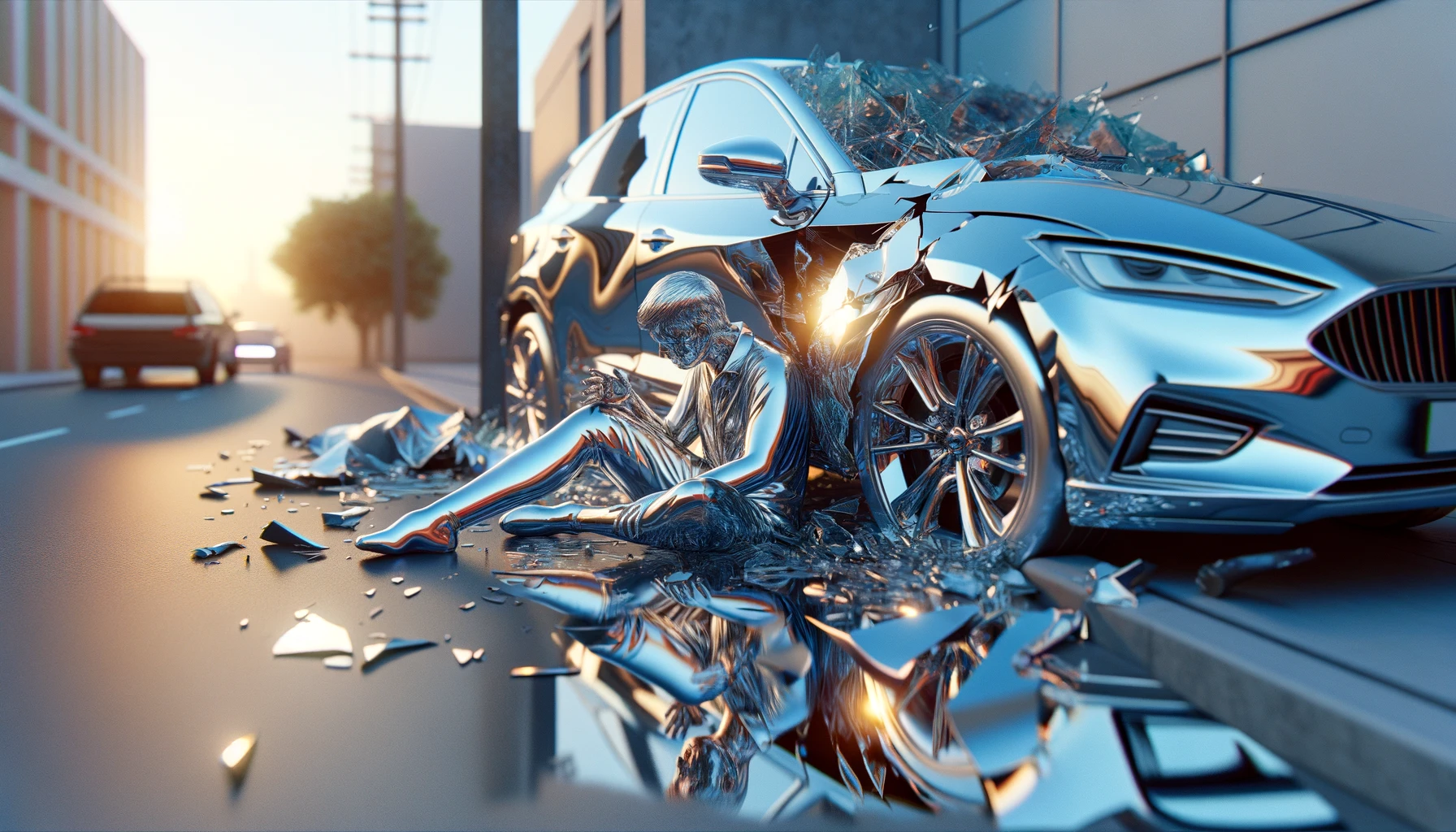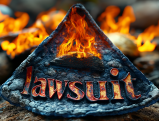
Understand the critical actions to take immediately following a car accident, including ensuring safety, seeking medical attention, and documenting the incident to protect your legal rights. These steps are vital for your health and legal outcomes.
by LawInc Staff
May 8, 2024
Car accidents are frightening and stressful and knowing what to do immediately afterwards can impact your health, legal rights and financial recovery.
Knowing all the right moves, post-accident, can make a huge difference.
Follow these essential legal tips and steps to protect yourself and optimize your position.
1. Prioritize Safety and Seek Medical Attention
-
- Check for Injuries: Assess yourself and passengers for any pain, bleeding or impairments.
- Move to Safety: If possible, relocate to sidewalk or shoulder away from traffic.
- Call 911: Report accident to police and request ambulance if anyone is hurt.
- Accept Medical Care: Allow first responders to evaluate you and transport to hospital if needed.
- Follow-up with Doctors: See your physician after ER visit to diagnose all injuries.
Examples:
-
- Jim felt shaken up but moved his damaged car to the highway shoulder.
- Sarah noticed her wrist was swelling so she asked responding officers to call an ambulance.
- Despite feeling okay after, Mark visited his family doctor who diagnosed a concussion.
- Adrenaline masked the pain at first, but by next day Kim could barely move her neck.
- What seemed minor at the scene turned into chronic back issues for David.
How to Proceed:
-
- Attend to any acute medical needs before anything else.
- If safe to do so, move disabled vehicles out of harm’s way.
- Insist on police response to document accident.
- Be forthright with EMTs about any pain or potential injuries.
- Schedule complete medical exam even if you feel uninjured.
FAQs:
-
- Should I move my car if it’s blocking traffic? Yes, if safely possible to prevent further accidents.
- What if I don’t want to go to the hospital? At minimum allow EMTs to check vitals and visible injuries.
- How soon after should I see my regular doctor? Schedule an appointment within a day or two.
- Do I really need to see a doctor if I feel fine? Yes, many serious but symptomless injuries exist.
- Can I refuse an ambulance ride to the ER? Yes, but it’s risky if you have any pain or concerns.
2. Gather Evidence and Document Everything
-
- Take Photos/Videos: Capture damage, injuries, vehicle positions, road conditions etc.
- Obtain Driver Info: Exchange license, registration, and insurance details.
- Identify Witnesses: Ask bystanders what they saw and record their contact info.
- Call the Police: Officers will take statements, assign fault, and generate reports.
- Notify Your Insurer: Call from the scene if possible to initiate the claims process.
Examples:
-
- Jason’s photos of the intersection showed the missing stop sign.
- The police report assigned fault to the driver who rear-ended Cindy.
- Two joggers gave statements confirming the car that hit Billy ran a red light.
- Detailed visuals helped justify Tracy’s injury and damage claims.
- A bystander got the license plate of the driver who hit James and fled.
How to Proceed:
-
- Use your phone camera to exhaustively document accident scene.
- Snap clear pics of other driver’s insurance card and license.
- Approach anyone who appears to have witnessed accident.
- Call 911 unless the accident is extremely minor.
- Contact insurance while details are fresh to jumpstart the claim.
FAQs:
-
- What if the other driver refuses to share insurance info? Notify the police immediately.
- Should I record my conversation with the other driver? It may escalate tensions; focus on pics/videos instead.
- What if witnesses seem hesitant to get involved? Respect their wishes but note any identifying details.
- When should I call my insurer if it’s late or a holiday? Leave a message and then call back during business hours.
- What if I don’t have a smartphone to take pictures with? Ask to use the other driver’s phone or have a witness capture pics.
3. Watch What You Say (And Don’t Say)
-
- Limit Discussion: Only talk about accident with police, doctors and your insurer/attorney.
- Stick to the Facts: Just objectively describe what happened without assigning blame.
- Avoid Admissions: Do not apologize or accept fault in any way, to anyone.
- Stay Off Social Media: Do not text, post or discuss any details of accident online.
- Direct Communications: Have attorney handle crash-related messages on your behalf.
Examples:
-
- Lisa politely declined to speculate about fault when questioned.
- By admitting “I’m sorry” to the other driver, Dan weakened his case.
- Investigators saw Mike’s posts about the crash undermining his claims.
- Adjustors got Jessica to downplay her injuries during a long recorded Q&A.
- An attorney helped negotiate Tom’s repair costs without him saying the wrong thing.
How to Proceed:
-
- Be brief, factual and unemotional when answering police questions.
- Never volunteer that the accident was your fault or apologize for anything.
- Resist urge to vent about crash details to friends and family.
- Make online profiles private to avoid defense snooping.
- Refer outsiders seeking comment to your designated counsel.
FAQs:
-
- Is it rude to refuse to discuss the accident with the other party? No, it’s your right to avoid commenting.
- Should I correct the police report if there are small errors? No, not unless they materially change the narrative.
- Can the other insurer use my apology against me? Yes, as evidence accepting fault and responsibility.
- How do investigators find claimants’ social media activity? By searching names, emails and relevant keywords.
- Will saying “I think…” before a statement protect me? No – avoid any speculation about what happened.
4. Start the Insurance Claims Process
-
- Review Your Policy: Read through your full auto coverage details and exclusions.
- Notify All Insurers: Contact providers for both vehicles to open claims.
- Obtain Claim Numbers: Note the identifiers assigned to process your case.
- Submit Evidence: Send pics, medical records, estimates, witness info, police report etc.
- Track All Communications: Log every email, call and conversation related to your claim.
Examples:
-
- Mandy’s $500k uninsured motorist policy proved critical when the at-fault driver had no coverage.
- Rick’s call to the other insurer made sure they knew their client was to blame.
- Having an assigned adjuster and claim# helped Sarah keep track of next steps.
- Tim’s records of lost wages and medical bills justified his settlement amount.
- Confirming conversations via email gave Julia a valuable paper trail.
How to Proceed:
-
- Understand your specific first-party medical, collision, rental, wage loss etc. benefits.
- Provide all relevant insurers with the who, what, where and when of the accident.
- Store claim numbers in your phone for easy reference.
- Use tracking and read receipts to confirm claim submissions.
- Note the name and direct contact of everyone you speak with.
FAQs:
-
- What if the at-fault driver’s insurer denies liability? Consult an experienced auto attorney immediately.
- How long does an insurer have to resolve a claim? Most policies require a determination within 30-45 days.
- Can the other driver’s insurance contact me directly? Yes, to obtain your statement.
- Do I have to provide medical records to the other insurer? Yes, if claiming injury against their policy.
- Is there a time limit to submit expenses to my insurer? Usually bills must be provided within 1-2 years.
Summary
Stay calm after an accident and follow the proper steps. Doing so is crucial and can make a difference in the outcome of a potential case. Try to avoid becoming overwhelmed and prioritize your health and safety first. Then focus on documenting everything at the scene.
Exercise caution when speaking to other parties since doing so can jeopardize your legal rights. Promptly contact your insurer and keep detailed records of all related expenses and communications. Resist any urge to discuss the incident online.
Always consult with an experienced attorney. Especially if fault is disputed or your injuries are severe. A skilled lawyer’s guidance and advocacy can make a major difference in receiving the compensation you deserve.
Conclusion
While no one ever expects to be involved in a car accident, knowing how to react is an important life skill. By following the tips outlined above, you can protect your health and legal interests during a highly stressful event.
Remember, the insurance company’s goal is to settle your claim for as little as possible. Having an experienced attorney on your side levels the playing field and helps ensure you receive full and fair compensation for your losses.
If you’ve been hurt in a crash caused by someone else’s negligence, don’t hesitate to seek qualified legal representation. The right lawyer can guide you through the complexities of the claims process and fight for the justice you deserve.
Need Help After a Car Accident?
If you’ve been injured in an auto accident, contact us to be connected with an expert focusing on personal injury law.
FAQs:
-
- 1. Should I call 911 even if it’s just a minor accident? Yes, it’s always best to report the accident to the police.
- 2. What information should I get from the other driver? Name, contact info, insurance details, license plate, and vehicle make/model.
- 3. Should I take photos of the accident scene? Yes, document damage to vehicles, injuries, and the surrounding area.
- 4. What if the other driver doesn’t have insurance? Get their contact info and report it to the police and your insurance company.
- 5. Should I admit fault to the other driver? No, do not admit or discuss fault at the scene. Let the police and insurance companies determine liability.
- 6. What if I feel pain after the accident? Seek medical attention right away, even if the pain seems minor. Some injuries may not be immediately apparent.
- 7. Should I notify my insurance company even if I wasn’t at fault? Yes, contact your insurer promptly to report the accident.
- 8. What if my car is not drivable after the accident? Have it towed to a repair shop or safe location, and inform your insurance company.
- 9. Should I accept a settlement offer from the other driver’s insurance company? Not without consulting an attorney first. Initial offers are often low.
- 10. What if the police officer doesn’t respond to the accident scene? Exchange info with the other driver and file an accident report with the police dept.
- 11. Should I contact an attorney after the accident? It’s wise to consult one, especially if there are injuries or dispute over fault.
- 12. What if I can’t afford to pay my medical bills? Your car insurance and health insurance may cover them. An attorney can also help pursue compensation.
- 13. Should I give a recorded statement to the other driver’s insurance company? No, politely decline until you’ve consulted with an attorney.
- 14. What if the other driver flees the scene? Call 911 immediately and provide any details you can about their vehicle and appearance.
- 15. Should I follow up with my doctor after the initial visit? Yes, keep all appointments and follow your treatment plan. This helps document your injuries.
- 16. What damages can I claim in a car accident case? Medical bills, lost wages, pain and suffering, vehicle repairs, and more depending on the circumstances.
- 17. How long do I have to file a car accident lawsuit? Statute of limitations vary by state but are typically 1-3 years from the date of the accident.
- 18. What if the accident was partly my fault? You may still be able to recover some damages depending on your state’s negligence laws.
- 19. Should I use my health insurance or car insurance to pay my medical bills? It depends on your coverage and the specifics of the accident. An attorney can advise you.
- 20. What if my injuries prevent me from returning to work? You may be able to claim lost wages and future earning potential.
- 21. Should I keep a journal after the accident? Yes, document how your injuries impact your daily life. This can help substantiate damages.
- 22. What if I was a passenger in an accident? You can file a claim against the at-fault driver’s insurance, even if that was the driver of the car you were in.
- 23. Should I accept a rental car from the other driver’s insurance company? Yes, if they accept liability. But clarify any restrictions and how long you can use the rental.
- 24. What if the other driver doesn’t have enough insurance to cover my damages? Your own uninsured/underinsured motorist coverage and a personal injury lawsuit can help fill the gap.
- 25. Should I still see a doctor if I feel fine after the accident? Yes, some injuries like whiplash and concussions may not be immediately apparent. It’s best to get checked out.
- 26. What if the other driver tries to blame me for the accident? Don’t argue with them. Let the police, insurance companies, and attorneys sort out fault.
- 27. Should I post about the accident on social media? No, refrain from discussing the accident online as it could be used against you in a legal case.
- 28. What if I need ongoing medical treatment after the accident? Keep thorough records and inform your attorney. These costs can be factored into your settlement.
- 29. Should I give the other driver’s insurance company access to my medical records? Not without first consulting your attorney. They can handle providing only the necessary records.
- 30. What if I had pre-existing medical conditions before the accident? The accident may have aggravated them. An attorney can help prove the accident’s impact on your health.
- 31. Should I sign any documents from the other driver’s insurance company? No, not without having an attorney review them first. You could unknowingly sign away your rights.
- 32. What if my car is totaled in the accident? Your insurance company will determine the fair market value and pay you that amount minus your deductible.
- 33. Should I let the insurance companies handle everything? They will handle some aspects, but it’s in your best interest to have an attorney advocating for you.
- 34. What if I disagree with the insurance company’s settlement offer? You can negotiate for a higher amount with the help of an attorney.
- 35. Should I give a recorded statement to my own insurance company? You may be required to under your policy terms, but have an attorney present to protect your rights.
- 36. What if the at-fault driver’s insurance company denies liability? Your attorney can gather evidence and build a case to prove their policyholder was at fault.
- 37. Should I accept a quick settlement offer to get the process over with? It’s advisable to wait until you reach maximum medical improvement. Settling too soon could leave you undercompensated.
- 38. What if I can’t afford an attorney? Most car accident attorneys work on contingency, meaning they only get paid if they win your case.
- 39. Should I give the other driver’s insurance company a copy of the police report? Your attorney can handle providing any necessary documents to insurers and other parties.
- 40. What if the other driver’s insurance company asks me to sign a medical release? Do not sign anything without having your attorney review it first.
- 41. Should I keep track of my expenses related to the accident? Yes, keep records of all medical bills, repair costs, rental car receipts, and other expenses.
- 42. What if I witness a hit-and-run accident? Call 911 to report it and provide any details you can about the fleeing vehicle and driver.
- 43. Should I inform my employer about my accident-related injuries? Yes, if your injuries impact your ability to work. You may be eligible for workers’ comp or disability.
- 44. What if I was driving for work when the accident happened? You may be covered under your employer’s insurance. An attorney can clarify your options.
- 45. Should I attend all court hearings for my accident case? Yes, unless your attorney advises otherwise. Your presence demonstrates the seriousness of your case.
- 46. What if I think the accident has caused me emotional distress? Inform your doctor and attorney. Mental health impacts can be included in your damages.
- 47. Should I ask witnesses to testify on my behalf? Your attorney will decide which witnesses to call based on their relevance and credibility.
- 48. What if I was jaywalking when I was hit by a car? You may still have a case depending on whether the driver was negligent. Consult an attorney.
- 49. Should I let the other driver’s insurance company inspect my vehicle? Yes, but have your attorney schedule and supervise the inspection.
- 50. What if I think I may have been partly at fault for the accident? Discuss this with your attorney confidentially. Don’t admit fault to others, as it can impact your case.
Disclaimer: The information provided in this article is for general informational purposes only and does not constitute professional legal advice. Every car accident is unique, and the appropriate actions to take may vary depending on the specific circumstances of your case.
This article is not intended to be a substitute for seeking personalized legal counsel. It is always best to consult with a qualified attorney who can evaluate the facts of your individual situation and provide tailored guidance.
The laws regarding car accidents and personal injury can vary by state and are subject to change. The information in this article may not reflect the most current legal developments.
Any examples or hypothetical scenarios mentioned in this article are for illustrative purposes only and do not guarantee similar outcomes in actual cases.
By reading this article, you agree that you understand and acknowledge this disclaimer. If you have been involved in a car accident, it is strongly recommended that you seek the advice of a licensed attorney in your area.
Also See
From Personal Injury to Paycheck: Your Road to Maximum Compensation After an Accident











